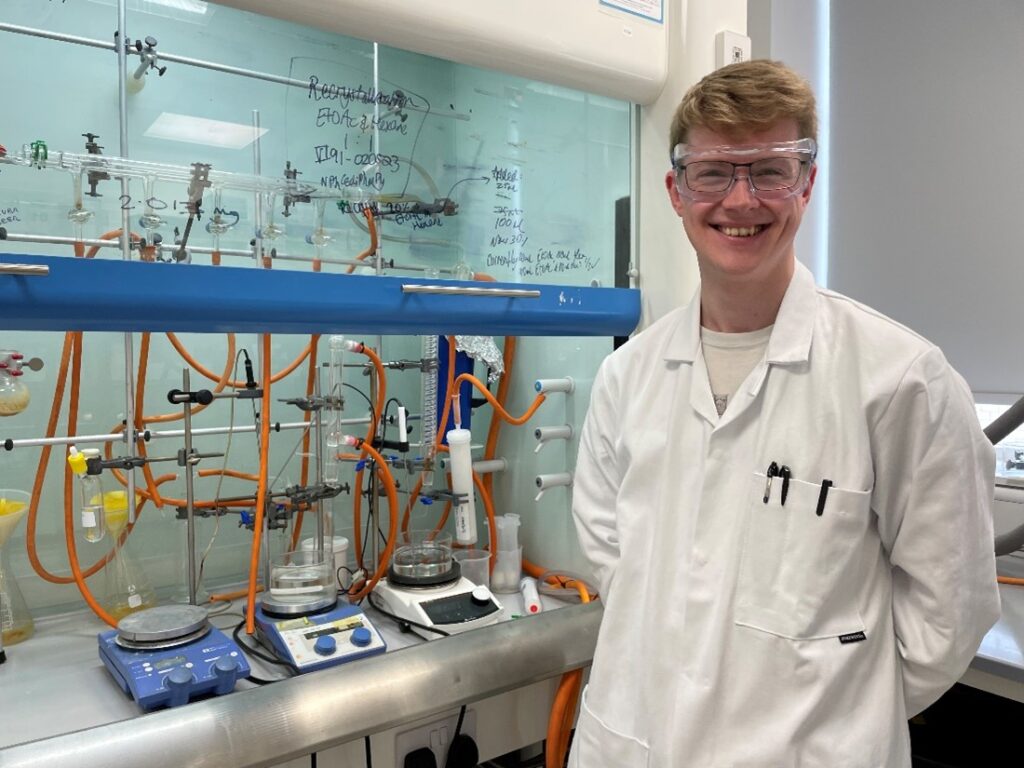Silico: A chemist’s new best friend?
Oliver Lee is a postgraduate student working in the School of Chemistry. Under the guidance of Professor Eli Zysman-Colman, Oliver’s primary focus comprises designing efficient Organic Light-Emitting Diodes (OLEDs). OLEDs are used primarily in devices such as smartphones, computers, light panels, and other tools requiring screens that emit light. These devices can emit across the visible spectrum and the colour that they emit is based on the photophysical properties of the emissive materials contained within them.
Oliver is currently working as part of the team tasked with designing Thermally Activated Delayed Fluorescence (TADF) molecules. This property promises high efficiency and colour tunability without the need for heavy metals in the OLEDs; however, a problem arises with regards to their emissions as they are not saturated enough for any one colour. Oliver is now working on Multi-Resonance TADF molecules that retain the same levels of efficiency and emit to produce pure colours, unlike donor-acceptor TADF compounds.
A self- proclaimed “nerd” this is one of a few projects that Oliver is undertaking. Well-versed in computational chemistry, Oliver uses modelling and screening to predict properties of the molecules before they are made as well as utilising machine learning to identify trends in large data sets. To make submission and data analysis more efficient, Oliver has created a much more refined and functional version of a previous tool developed within the Zysman-Colman group, which Oliver reflects was a “lockdown project, that’s gotten out of hand”. The tool is Silico, a software package written by Oliver that is being used primarily by researchers in chemistry.
Silico provides a comprehensive analysis of computed properties and is a toolbox for making computations accessible to the broader community. In the context of Oliver’s research, this program allows users to predict the colour of a molecule’s light emission and how efficient the molecule will be. Whilst it is currently being targeted towards peers conducting research similar to Oliver’s, i.e., related to the generation of light, this program has functionality that is of benefit to a wide range of researchers.
Oliver is starting up his own company in partnership with Eli, as he believes the scope of this program could benefit many researchers, considering its versatile nature. When asked whether this program could be applied to other disciplines, Oliver believes that one potential avenue could be biological and medicinal research. Silico helps to reduce the researcher’s workload by managing the workflow of the computations. Screening thousands of such molecules could take hours when done manually, but with Silico it would be a matter of minutes. In the future, Oliver hopes to enhance the program to serve other research communities, building it into a tool with diverse and impactful use across disciplines.
This program bridges an essential knowledge gap in research, more specifically in how to conduct research. “Once researchers have identified the molecule they need to investigate,
